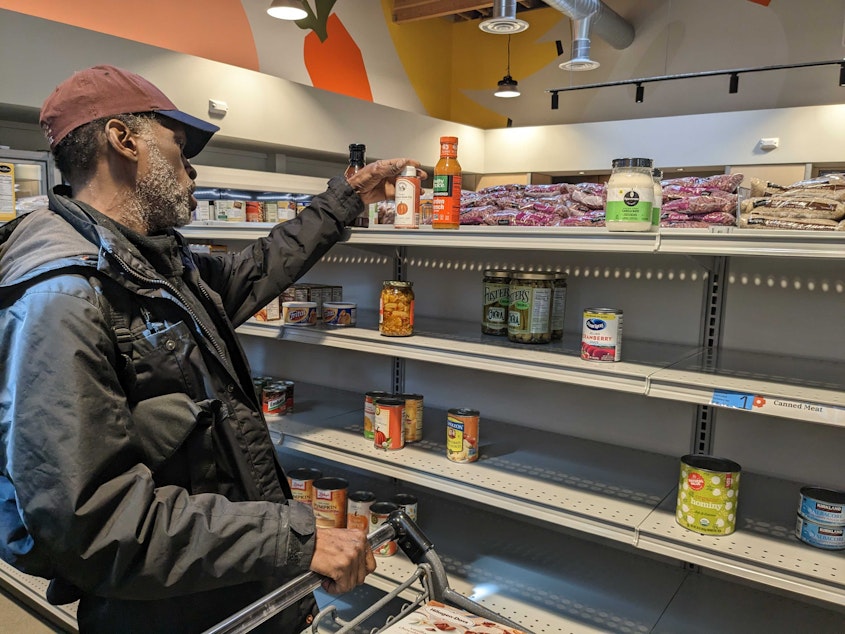Studies show link between food insecurity and housing instability

King County is seeing a surge in evictions this winter. That means families are also struggling to buy food.
More than 600 eviction cases were filed in October, according to Edmund Witter, managing attorney at the Housing Justice Project, which provides legal aid to renters facing eviction.
Witter said he saw a lot of evictions during the Great Recession in 2008. But this recent sharp rise surpasses that.
“Most of the stories we hear from clients are that they fell behind because of temporary unemployment, a medical emergency or loss in the family,” Witter said.
To cope, families often end up foregoing food to make rent.
“Housing instability and food insecurity are inextricably linked,” said Alex Ashbrook, with the Food Research and Action Center in Washington, D.C. "Rent is a fixed amount every month, whereas food is a more flexible expense.”
Sponsored
That coping strategy to free up money for rent often leads to harmful health effects for children.
“We see that it leads to poor physical and mental health, and hinders their physical development, educational progress,” Ashbrook said.
The combination also creates risk factors for mothers experiencing depression and parenting stress.
Rates of food insecurity are higher for Black and Latino families compared to white households.
Witter said many factors contribute to the surge in evictions, including rising rents and increased cost of living. The lack of assistance or a regional safety net makes it harder for families to recover from a temporary setback.
Sponsored
“A lot of times tenants can pay ongoing rent,” Witter said. “They just can’t pay the two months that they owe, or the one month that they owe.”




